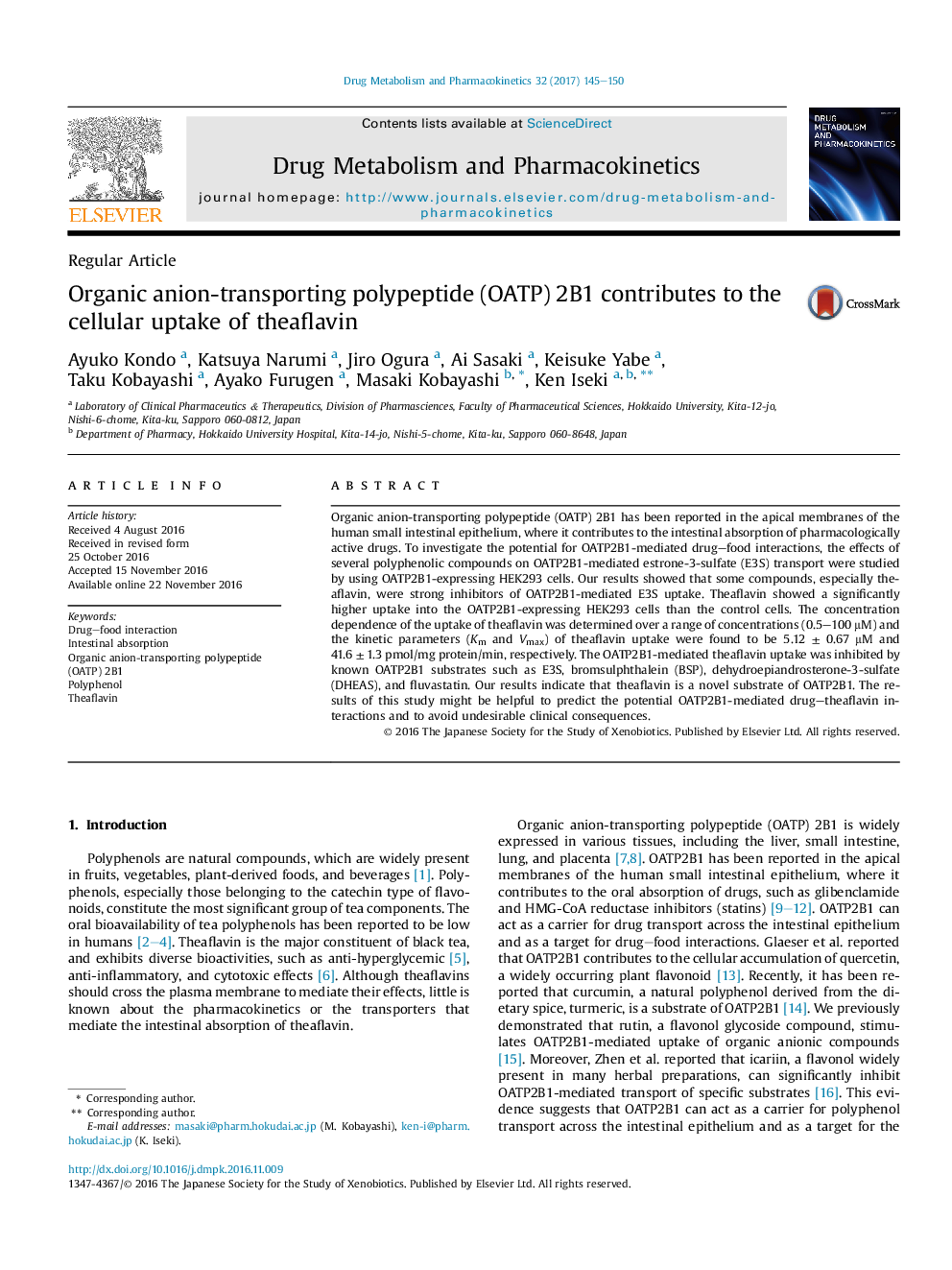| کد مقاله | کد نشریه | سال انتشار | مقاله انگلیسی | نسخه تمام متن |
|---|---|---|---|---|
| 5547042 | 1402779 | 2017 | 6 صفحه PDF | دانلود رایگان |

Organic anion-transporting polypeptide (OATP) 2B1 has been reported in the apical membranes of the human small intestinal epithelium, where it contributes to the intestinal absorption of pharmacologically active drugs. To investigate the potential for OATP2B1-mediated drug-food interactions, the effects of several polyphenolic compounds on OATP2B1-mediated estrone-3-sulfate (E3S) transport were studied by using OATP2B1-expressing HEK293 cells. Our results showed that some compounds, especially theaflavin, were strong inhibitors of OATP2B1-mediated E3S uptake. Theaflavin showed a significantly higher uptake into the OATP2B1-expressing HEK293 cells than the control cells. The concentration dependence of the uptake of theaflavin was determined over a range of concentrations (0.5-100 μM) and the kinetic parameters (Km and Vmax) of theaflavin uptake were found to be 5.12 ± 0.67 μM and 41.6 ± 1.3 pmol/mg protein/min, respectively. The OATP2B1-mediated theaflavin uptake was inhibited by known OATP2B1 substrates such as E3S, bromsulphthalein (BSP), dehydroepiandrosterone-3-sulfate (DHEAS), and fluvastatin. Our results indicate that theaflavin is a novel substrate of OATP2B1. The results of this study might be helpful to predict the potential OATP2B1-mediated drug-theaflavin interactions and to avoid undesirable clinical consequences.
Journal: Drug Metabolism and Pharmacokinetics - Volume 32, Issue 2, April 2017, Pages 145-150